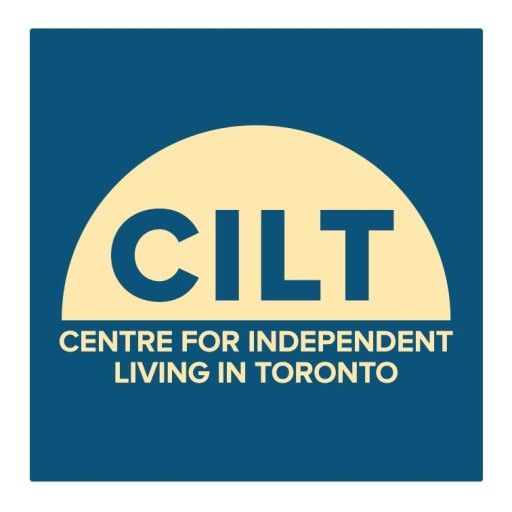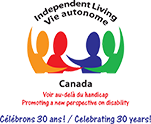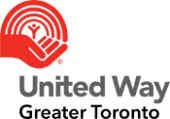“Creating an Enabling Environment in Mammography: Innovative, Research-based Education Tools and Resources about Breast Cancer Screening, Mammography, and Disability”
Featuring:
- “It’s About Communication”, Short Film
- eLearning Module
- Online Facilitation Guide for Immersive Learning and Facilitated Discussion Education Programs
- Tip Sheets and Guides
This community-based research initiative was developed through the generous support of the Canadian Breast Cancer Foundation, Ontario Region.
To find out more, visit: https://www.mountsinai.on.ca/education/patient-and-family-education/CreatingEnablingEnvironment/
Wheelchair Accessible Mammogram clinics in Ontario
Click the following link for a complete list: OBSP Screening Site Locations (Wheelchair Accessible)
Disability and Society
This article is the first phase in the Gateways to Cancer Screening project – a user driven participatory research project that examines barriers and facilitators to preventive cancer screening for women with physical mobility disabilities.
Please click this link to read more: Navigating healthcare – Gateways to cancer screening
Gateways makes Toronto Star Coverage
Gateways makes headlines in the Toronto Star. Reporter, Barbara Turnbull, does an excellent job at capturing the essence of the Gateways to Cancer Screening Project. Read the article on thestar.com.
Gateways to Cancer Screening: A Participatory Needs Assessment of Women with Mobility Disabilities
How we got started
The Centre for Independent Living in Toronto (CILT) recognized the need to increase the level of awareness of screening for breast, cervical and colorectal screening among disabled women in the Toronto area. Partnerships were then developed with Mount Sinai Hospital and Canadian Cancer Society in order to write a proposal and seek funding.
Funding and support
The project is funded and supported by the Canadian Cancer Society, in particular, the Diversity & Cancer Control teams. They provide in-kind for the project, and ensure that the project reflects the diversity that exists in Toronto.
Recommendations from the research will be will be carried forward in a meaningful and sustainable way.
Who are the team partners in this project?
- Centre for Independent Living Toronto (CILT) Inc.
- Mount Sinai Hospital, Marvelle Koffler Breast Centre
- Canadian Cancer Society
- University of Toronto, Faculty of Nursing
Also on our Advisory Group
- Ismaili Cancer Support Network
- Anne Johnston Health Station
- Springtide Resources (formerly Education Wife Assault)
What is the Gateways Project?
The Gateways Project is a community-based participatory project that was carried out in the form of a qualitative needs assessment. We aimed to explore the experiences and needs of women with mobility disabilities when they access breast, cervical and colorectal cancer screening.
Background: Cancer and Screening
Early detection and screening are seen as ideal areas of intervention in the cancer control continuum. For women with disabilities, access to screening and support has been a challenge due to multiple barriers:
- Women with disabilities have the same biological risks as other women for developing all cancers.
- These barriers include lack of knowledge among these women, neglect on the part of health care providers, and physical access barriers (Welner; 1998).
- Women with disabilities, in particular those who are older, are less likely to receive regular Pap tests and mammograms (Nosek & Howland, 1997).
Diversity
- Previous research has been conducted examining the barriers women with disabilities face in accessing preventative cancer screening; most of the research has been conducted outside of Canada.
- No existing research has explicitly examined the experiences of disabled women from a Toronto perspective.
- One of the aspects that makes Toronto unique is our demographic diversity.
Intersectionality
A central aspect of this project is examining the ‘intersectionality’ of identities and exploring how intersecting identities impact a woman’s experience with screening processes; for example, a Deaf lesbian mother from a Metis heritage who has multiple disabilities.
Recruitment and Demographics
The research team outreached to the various communities highlighted above through various mediums, including sending recruitment flyers to a wide variety of disability organizations, as well as those serving women from the lesbian, bisexual, trans-gendered, trans-sexual, ethno-racial and aboriginal communities. Through partner organizations including the Centre for Independent Living Toronto, the Anne Johnston Health Station, Springtide Resources and the Ismaili Cancer Group, among others, a wide recruitment was conducted through newsletter articles, website postings, individual telephone calls, circulation of outreach flyers and word-of-mouth. All women interested in participating as a focus group participant were asked to contact the Project Coordinator for more information.
Demographic | Number of Participants | % |
| Young women (under the age of 30 years) | 2 | 8 |
| Lesbian, bisexual, transsexual, transgendered or queer | 3 | 12.5 |
| Women from ethno-cultural groups | 7 | 29 |
| Women living in poverty or economic hardship | 7 | 29 |
What is a Qualitative Needs Assessment?
A Needs Assessment is an exploration of the way things are and the way that they should be. In qualitative needs assessments, the aim is to gain personal insight from individuals or groups as to the nature and impact of a particular situation (Kaufman, R & Fenwick, W. Needs Assessment: Concept and Application, Educational Technology Publications, Englewood Cliffs, New Jersey, 1979).
Initially, the Gateways Project working group considered taking the qualitative description research approach. Historically, researchers did not include members from the disability community in their work. The project team strongly believed in inclusion and consensus-based decision making at each stage of the project. We also wanted an action component, which therefore moved us to Participatory Action Methodology.
What is Participation Action Research?
The emphasis is on relinquishing control, learning through mutual interaction between researchers and participants, and giving voice to those who would not otherwise be heard (Specziale & Carpenter, 2000, p. 329).
We chose this method of research because it included participation and most importantly, an action component. The action component is where we take the knowledge from the focus group participants and transfer it to cancer screening organizations, raising awareness among service providers that could possibly lead to informed changes in practice. Focus group participants would also feel empowered through shared discussion and the fact that their voices were being heard and listened to. It was decided by the research team that for this particular study, the Gateways Project, focus groups would be the best way to collect data with peer facilitators asking the questions, because focus groups allow participants to build on each other’s ideas that may not be obtained in a one-to-one interview.
Approval was obtained by the Research Ethics Board at the University of Toronto, for consent forms, letters of invitation to organizations who provided support to women with mobility disabilities, recruitment flyers and research protocol.
Community Outreach
We deliberately attempted to hear from women from diverse communities, including women of colour, lesbian, bisexual, trans-gendered and trans-sexual communities, in order to truly reflect the diversity that exists in Toronto and make the resulting recommendations relevant to as many people in Toronto as possible.
Prior research on women with disabilities has implicitly assumed that either all women with disabilities are the same, or that disability is the singular central aspect of these women’s lives.
Women with disabilities come from diverse sociocultural demographics, and these aspects of life impact the experience of disability and one’s relationship with the healthcare system.
How we carried out the Needs Assessment
In total, five focus groups were conducted which were led by peer facilitators, with individuals who self-identified as women living with mobility disabilities. In order to participate in a focus group, each participant had to meet the screening criteria: no previous history of breast, cervical or colorectal cancer; they had to be at least 18 years of age and living in the GTA. Women were able to discuss their experiences with cancer screening and share insights, barriers and facilitators of screening.
How the Focus Groups were conducted
Each focus group was held at an accessible location, two at CILT, two at the Canadian Cancer Society, and we were asked to do one in the Region of Peel. At the beginning of each focus group, participants were give a written document, providing them with information on the background of the study, the purpose and design of the study, the length of the study, possible side effects and risks, possible benefits, compensation (each focus group participant received a $50 honorarium for their participation in the study), description of the research team, the fact that their participation in the study was completely voluntary, and that they could refuse to answer any question at any time, and a confidentiality form which they were asked to read, ask questions about and sign.
Ground rules for confidentiality were mutually discussed by everyone before the actual focus group began. All participants were provided with attendant services, if required, and light refreshments.
Health Presentation on Breast, Cervical and Colorectal Cancer Screening Guidelines
“There are two major components of early detection of cancer: education to promote early diagnosis, and screening.” (World Health Organization)
At the beginning of each focus group, before getting into the actual focus group questions, a small PowerPoint presentation was given on Breast, Cervical and Colorectal Cancer information with the current screening guidelines set out by Cancer Care Ontario.
Peer Facilitation, Process Checking & Take-Home Information
Each focus group had two on-site transcribers using laptop computers, all focus group sessions were audio taped, and information provided by the participants was recorded on a flipchart as a method of validation. To ensure the emotional well-being of focus group participants, we ensured that a social worker or supportive staff person was available at each of the sessions if debriefing was required.
Each participant received a Canadian Cancer Society (CCS) bag with small gifts, and information about CILT, CCS, Cancer Care Ontario, Sherbourne Health Centre and cancer screening.
Highlights of the Report
Major participant recommendations within our preliminary findings:
* More places with accessible exam tables and screening technology and on-site attendant care that are clearly publicized to the disability community.
* Strategic health messaging with disability-positive images and specific information for women with disabilities to support self-advocacy in accessing screening.
* More personnel to address disability-related needs and anxieties prior to screening procedures.
* On-site health education sessions for women with disabilities on screening guidelines, procedures and body-specific strategies for optimal care.
* Disability Training for Health Care Professionals and clinical staff at all levels on appropriate and clear communication, compassionate behaviour and best practices.
* Creating safe and positive spaces for women with disabilities from LGBTTQ communities, marginalized ethno-cultural communities, low socio-economic status and various ages.
* Patient-centred and integrated preventive cancer care that includes more options and less coordinating work for patients.
For full report, please click the following link: Gateways to Cancer Screening Project Report.
Lesbian and bisexual women’s breast health and breast cancer project resources
The full toolkit of resources produced by the “Making Us Visible: Promoting Access to Breast Health and Breast Cancer Services for Lesbian and Bisexual Women” project is now available online.







